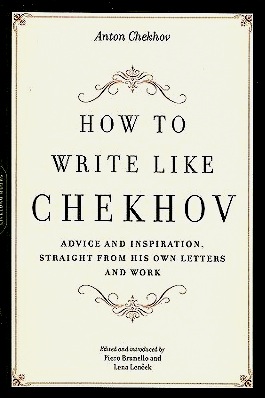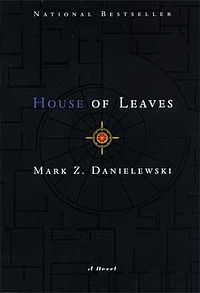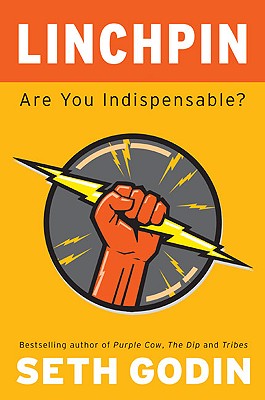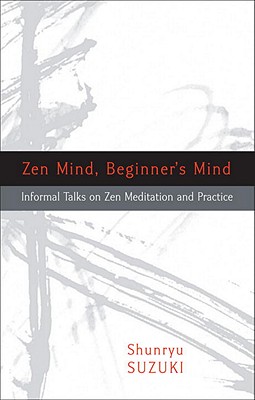Books Read in 2011
1. How to Write Like Chekhov |
|
|---|---|
 |
I’ve read a lot of “How-to-Write” books, and this was one of the best that I’ve read. There was an interview I read with Raymond Carver where he said the only instruction book he would recommend to his students was the collected letters of Chekhov. What’s great about this book is that it takes out all of the parts of Chekhov’s letters that do not directly deal with the craft of writing. |
2. The Paris Review Interview Volume 1 |
|
|---|---|
|
This book is great for giving an insight into the way great authors created their great works. The best part of the Paris Review interviews is that they reprint a facsimile of the author’s manuscript page for the reader’s review. So many times I find myself believing that great authors create their great works without having to do any editing. But when you see the original manuscript pages, and the various scratched out words and passages, you realize their manuscript pages look just like yours. |
|
3. The Myth of Sisyphus and Other Essays |
|
|---|---|
 |
I was not a fan of Camus until I read this book. I read “The Stranger” in high school and didn’t much care for it. Many of the essays deal with suicide and whether or not it is ever philosophically valid to end one’s life. Camus determines that every life is worth living until its end comes naturally. It’s also one of his most optimistic books, which may be why I liked it more than “The Stranger.” |
4. On Becoming a Novelist |
|
|---|---|
 |
I’m still working my way through John Gardner’s “The Art of Fiction,” but this one was a much quicker read. It was a very informal and candid conversation with Gardner on what he believes makes an author. And while I remember disagreeing with some of his beliefs, it’s filled with sage wisdom that every writer should at least hear once. |
5. EPUB Straight to the Point |
|
|---|---|
 |
I’ve been working on a digital version for “Learn to Speed Read” since its release in 2009 and trying to figure out the most effective way to embed fonts into the EPUB format. This book showed me that the best way right now to write eBooks is to code them from scratch. It’s the only way you can insure that the formatting will come out correct. Needless to say, since reading this book I’ve begun to dive deeper into HTML and CSS coding. |
6. House of Leaves |
|
|---|---|
 |
Last year I read “Tree of Codes” by Jonathan Safran Froer and I was excited by the idea of creating an avant-garde novel. I told my friend about creating this novel composed of all these various parts with references where the reader has to shift through it all to find the story. To which my friend replied, “Oh, like ‘House of Leaves’?” I had never heard of the book before and my friend pulled it from his shelf and showed it to me. There it was. The book I was describing already in print and carried out in a much better fashion than I had in mind. It was fascinating to read. It was fun and creepy and bizarre. More than anything, I think what made this book special to me was that I participated in the way the story unfolded. Usually the role of the reader is passive, but this book requires active participation in order decode the various sub-plots contained in the story. |
7. Why I Write |
|
|---|---|
 |
One of Penguin’s short books, it was one of the most boring books I read this past year. I know many people are Orwell fans, but unfortunately I am still not. And this book did not help in my pursuit to enjoy his works. |
8. Linchpin |
|
|---|---|
 |
I’ve been a longtime fan of Seth Godin. Many of the ways I’ve run this site, launched my books, handled copyright, etc. is due to his writing. I say this up front because I want you to understand how much respect I have for Godin, and like many others, I view him as a kind of demi-god of marketing and digital media. I’d also like to tell a little story about when I worked as a film editor. The producer/director who oversaw my work gave me a great piece of advice I’ll never forget. He said, “Kris, every filmmaker has 36 bad movies in him. The key to being successful is making those 36 films before you make it big.” So when I see a bad movie after the writer/director/etc. has had a long run of successful films, I think this must be one of those 36 bad movies. If you need an example, see “Star Wars Episode I: The Phantom Menace” for reference. With that said, I think the same can be said for writing and that every writer has 36 bad books in him or her. For me, this was one of Godin’s 36. |
9. Spunk and Bite |
|
|---|---|
 |
Why I’m compelled to read books about writing and grammar I have no idea. But this book was one of the most fun grammar books that I’ve read. Whereas other books encourage developing writers to use archaic phrasing and rules from the dawn of man, this book encourages its readers to take risks and shows how to write with a fresh and detailed style. |
10. The Manual of Detection |
|
|---|---|
 |
A fun mystery thriller; a mix of “Inception” with “The Maltese Falcon” it’s a surreal detective story in a mythological world that resembles a working dystopian society found in other Sci-Fi/alternate history novels. It’s a quick read and very enjoyable. |
11. All My Sons |
|
|---|---|
 |
In college, I wrote a paper on “Death of a Salesman” probably every 6-8 months. And I regret to say that I wrote those papers from the various summarized pages of Cliff’s Notes and Spark Notes that I breezed through to get through those classes. And the result of my superficial skimming of Arthur Miller’s works was an indifference to his writing and a general feeling that his plays were interesting but not great. Needless to say, I could not have been more wrong. This was the play that changed it for me. I cannot begin to tell you how much this play impacted me. For a long time, I felt (and wrongly so) that playwrights were only doing half the job of good novelist and therefore their writing didn’t need to be as good because it was going to be acted out and therefore the writing didn’t need to be that good. But after reading Arthur Miller, I no longer hold that viewpoint. Instead, I hope that someday I will be able to write one book that’s as good as any one of Miller’s plays, knowing full-well that day is far off and that it might take place long after my death. |
12. Penguin 75 |
|
|---|---|
 |
After publishing a book, I gained a new respect for book designers. If you are interested in book design, this is a great read and has become a reference book that I return to often. |
13. Death of a Salesman |
|
|---|---|
 |
See my note on “All My Sons,” for which I can easily say the same for this play. |
14. The Prince |
|
|---|---|
 |
It’s “The Prince”; ‘nuff said. |
15. Zen Mind, Beginner's Mind |
|
|---|---|
 |
While reading Steve Jobs’ biography I was intrigued by the role that spirituality played in his life. Further research into books that influenced Jobs’ spirituality I came across this book, which was a great introduction to Zen meditation and Zen philosophy. If you’re a twenty-something interested in learning more about Zen meditation this is an excellent introduction. |
16. Steve Jobs (Biography) |
|
|---|---|
 |
Amazon’s bestseller of 2011, it is the first biography I’ve read so quickly and enjoyed from start to finish. There are people in life that do things a certain way and create some of the most amazing things. Their methods, both wrong and right, will never be duplicated by any other human being and produce the same result; Jobs was one of those people. For better or worse, his methods were unique and will never be duplicated and his results were more than most of us will ever do. |
17. Love is a Dog From Hell |
|
|---|---|
 |
Bukowski is always good for a laugh and his various poems on womanizing, drinking and gambling, make me smile because the truth of Bukowski’s life is so sad that you have to laugh or cry about his life. I choose to laugh. |
18. How to Win Friends and Influence People |
|
|---|---|
 |
This was a book that was recommended to me by one of my friends. Having never been a salesman and having always believed strongly in the benefits of argument and debate, I found this book a fascinating read. And while some of its material is dated and some of its methods are no longer applicable, it has shown me that there are other ways to win an argument other than by debate. If want to know those methods, I suggest reading this book. |
19. The Great Escape |
|
|---|---|
 |
My favorite film of all time is “The Great Escape.” It seems odd that I’ve waited so long to read the book that the movie was based on. It was a fun read because it gave a more in-depth look into the characters I have come to love and mythologize in my mind. It also made the people more real and less like their Hollywood god-like counterparts. The men’s flaws and mishaps only made their story that much stronger to me, because the people that pulled off the greatest escape from a POW camp were ordinary people put into an extraordinary situation and came out the other side as legends. |
20. A Book of Five Rings |
|
|---|---|
 |
After reading Sun-Tzu’s “Art of War” this book landed on my reading list but it wasn’t until this year that I took the time to read it. Unfortunately, I did not find its information as transferrable as Sun-Tzu’s words of wisdom and did not enjoy reading this old volume on strategy. |
21. Zero: The Biography of a Dangerous Idea |
|
|---|---|
 |
One of the most fascinating books I read this past year. It is the biography of the number, or non-number, zero. It’s amazing how much zero affects our daily lives and our perception of various things, without ever realizing it. Towards the end of the book, the math went beyond my grasp but the explanations were so well done that I did not feel the need to prove the various theorems in the book in order to understand the gravity that this number has in our world. |
22. Dispatches |
|
|---|---|
 |
I watched the behind the scenes of “Apocalypse Now!” and found out that Michael Herr wrote much of the narration for the film and that his book “Dispatches” was THE book on the Vietnam war. I’m not much of a war historian, nor do I find myself reading military journals and histories. This book was written almost like poetry, the way Herr phrases things is unique and beautiful, despite the fact that the things he is describing are awful and terrifying. After reading this book, I am thankful more than ever that I have not had to see war first-hand, because I know I would never have come out alive. |
23. Economics in One Lesson |
|
|---|---|
| After watching “Moneyball” this year, I became interested (for the first time in my life) with the study of economics. I decided to read a book on the topic and found this book recommended as a great introduction to the subject matter. I finished the book recently and have yet to decide whether or not I agree with many of its assertions and statements; however, much of its writing is still swimming around in my mind and posing questions that I would never have asked if I had not read this book. | |
24. Jimi Hendrix Gear |
|
|---|---|
 |
Jimi Hendrix was the best guitar player of all time. And after spending years studying his music now, my conclusion that the music was in his hands and not in his gear is more concrete than ever; especially after seeing the kind of guitars that he played. |
25. Who is Jake Ellis? |
|
|---|---|
| The only graphic novel I read this year. After Disney bought Marvel, and Hollywood decided to make every single comic book into a movie, I’ve been a jaded about reading comics. This quick little read renewed my faith in the medium and shows that the pairing of great writing and great artwork make for a beautiful vessel to communicate a story to a reader. | |
26. Armegeddon in Retrospect |
|
|---|---|
 |
A selection of Vonnegut’s shorter stories centering on Word War II and life in a POW camp. Some stories were better than others, most of which I found at the end of the book. It’s not one of his best collections, it’s not one of his worst, but it doesn’t really matter because if you like Vonnegut you’ll read it anyway. |